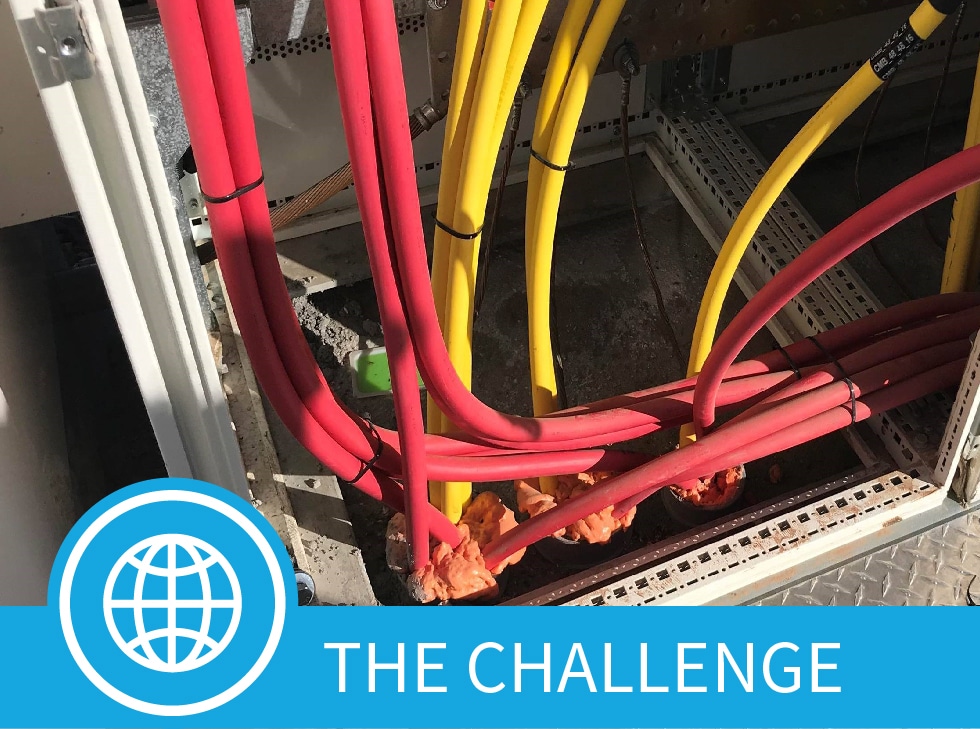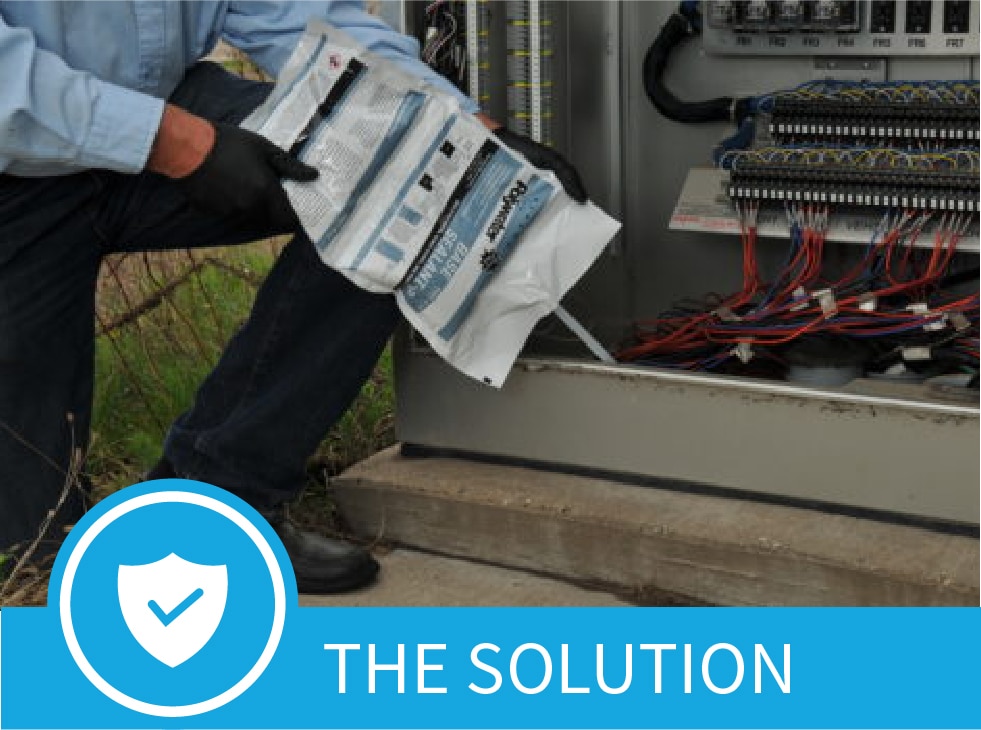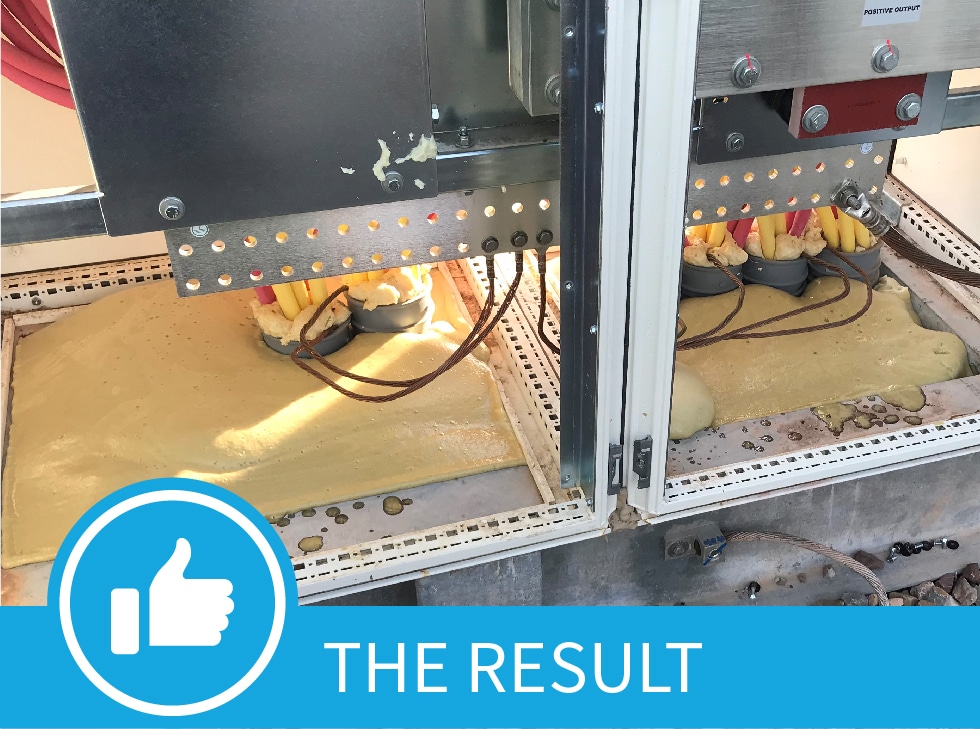Taking the Bite Out of Rodent Damage
Solar Inverters Hardened with InstaGrout™ to Resist Damage Due to Rodents and Other Pests

Cable Damage Due to Rodent Infestation
A large EPC constructed a solar installation in Utah. There were 7 solar sites, with an average of 44 inverters per site. During the original install, it was decided to forgo the bottom plates to make installation easier.
A thin grout was used and, within weeks, mice were building nests. The rodents attracted snakes and the snakes shorted out the inverters.

Cost-Effective Method Chosen
The firm evaluated options for hardening their inverters. Concrete would require the entire solar installation to be powered down if poured during the day or incur additional cost and overtime if poured at night.
Jeremie Branton, project manager for the EPC, discovered InstaGrout and realized they would not need to coordinate with concrete suppliers, and InstaGrout would be deployed when convenient with personnel already on site.

Effective Ground Barrier to Rodents and Other Pests
By powering down only one inverter at a time, the contractor was able to harden all inverters with little disruption to power generation. They were able to install during normal work hours, eliminating possible overtime.
InstaGrout mixes easily onsite with no water needed, and adheres to fiberglass, polymer concrete, and concrete pads. It tolerates temperature extremes and will not settle, crack, shrink, or crumble.
Self-leveling InstaGrout improves electrical reliability. It expands to fill voids around conduit stub-ups and cable, then cures to provide a smooth, resilient, and impermeable ground barrier against pests.
InstaGrout was the best choice to make the inverters rodent and pest resilient, ensuring uninterrupted power to consumers.
